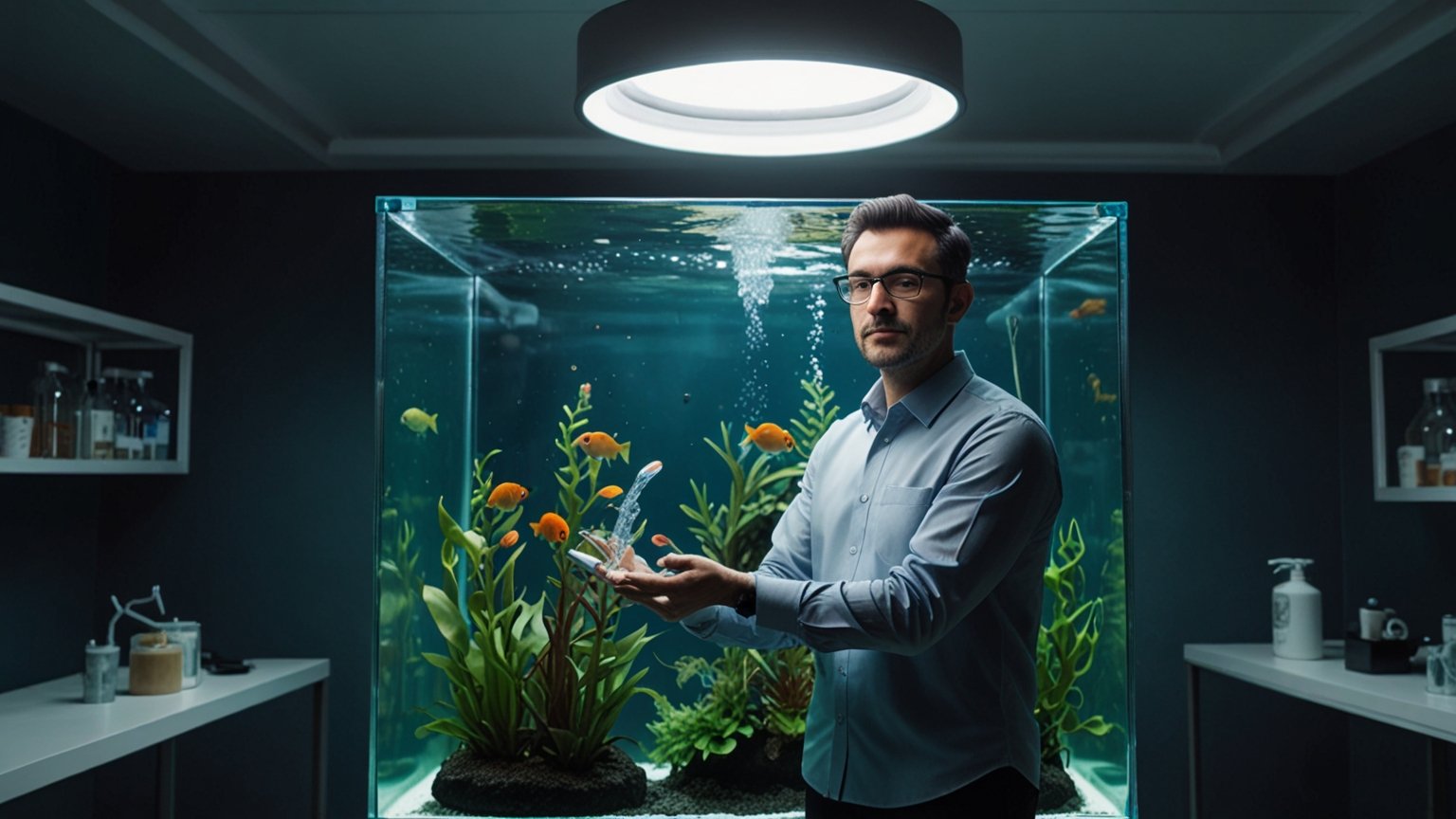Aquaculturist Career Information (USA)
Introduction to the Career
Aquaculture, also known as aquafarming, is the cultivation of aquatic organisms such as fish, crustaceans, mollusks, and aquatic plants. Aquaculturists are the skilled professionals responsible for managing and maintaining these aquatic farms. They oversee the entire production process, from selecting suitable species and designing farming systems to monitoring water quality, managing feeding and nutrition, preventing diseases, and harvesting the products.
Career Values, Traits, and Skills
Successful aquaculturists typically possess the following values, traits, and skills:
- Passion for Aquatic Life: A genuine interest in aquatic organisms and their well-being is essential for this career.
- Scientific Knowledge: Aquaculturists need a strong understanding of biology, ecology, water chemistry, and the specific requirements of different aquatic species.
- Problem-Solving Skills: The ability to troubleshoot challenges like disease outbreaks, water quality issues, and environmental fluctuations is crucial.
- Technical Skills: Proficiency in operating and maintaining aquaculture equipment, such as pumps, filters, and feeding systems.
- Business Acumen: Many aquaculturists work in commercial settings and need to understand production costs, marketing, and sales.
- Physical Stamina: Aquaculture can involve physically demanding tasks like feeding, harvesting, and maintaining equipment.
- Adaptability: Aquaculturists need to be adaptable to changing environmental conditions and market demands.
Career Path
A bachelor’s degree in aquaculture, fisheries science, marine biology, or a related field is typically the minimum requirement for entry-level positions. Some employers may prefer candidates with a master’s degree for more specialized roles. Practical experience gained through internships or volunteer work at aquaculture farms can be beneficial for career advancement.
Salary Range
The salary for aquaculturists in the USA varies depending on experience, education, specialization, and the type of aquaculture operation. The median annual wage for agricultural and food scientists, a category that includes aquaculturists, is around $74,160. However, salaries can range from $48,360 for entry-level positions to over $129,050 for experienced aquaculturists with advanced degrees.
Tips for Success
- Gain Practical Experience: Seek out internships or volunteer opportunities at aquaculture farms to gain hands-on experience and apply your theoretical knowledge.
- Pursue Certifications: Consider obtaining certifications in specific areas, such as Aquaculture Facility Manager or Hazard Analysis Critical Control Point (HACCP) certification, to enhance your expertise and credibility.
- Network: Attend industry conferences, workshops, and trade shows to connect with other professionals and learn about the latest advancements in aquaculture.
- Stay Updated: Aquaculture is a rapidly evolving field. Keep abreast of new technologies, best practices, and regulatory changes.
- Specialize: Focus on a particular area of aquaculture, such as fish farming, shellfish farming, or algae cultivation, to develop expertise and cater to specific market demands.
References
- U.S. Department of Agriculture (USDA) – Aquaculture
- National Oceanic and Atmospheric Administration (NOAA) Fisheries – Aquaculture: https://www.fisheries.noaa.gov/topic/aquaculture
- The World Aquaculture Society: https://www.was.org/
- Aquaculture Association of Canada: https://aquacultureassociation.ca/
សេចក្ដីណែនាំ
នៅក្នុងការងារដំបូងរបស់អ្នកនៅក្នុងវារីវប្បកម្ម អ្នកប្រហែលជាស្តុកទុកស្រះ ចិញ្ចឹមត្រី តាមដានគុណភាពទឹក ពិនិត្យជំងឺ ប្រមូលផលត្រី និងថែទាំឧបករណ៍។ ប្រសិនបើអ្នកក្លាយជាអ្នកគ្រប់គ្រង អ្នកនឹងត្រួតពិនិត្យកម្មករស្រះ រៀបចំផែនការផលិតកម្ម ទិញចំណី និងឧបករណ៍ ព្រមទាំងរៀបចំផែនការប្រមូលផល កែច្នៃ និងទីផ្សារ។
អ្នកចិញ្ចឹមវារីវប្បកម្មអាចធ្វើការឱ្យសាជីវកម្ម ឬអ្នកចិញ្ចឹមត្រីឯករាជ្យ។ ប្រតិបត្តិការធំៗមួយចំនួនមានម៉ាស៊ីនកិនចំណី និងរោងចក្រកែច្នៃត្រី ក៏ដូចជាស្រះសម្រាប់ចិញ្ចឹមត្រីផងដែរ។ ក្រុមហ៊ុនជួលអ្នកចិញ្ចឹមវារីវប្បកម្មជាអ្នកបច្ចេកទេសដើម្បីធ្វើតេស្តគុណភាពទឹក ឬពិនិត្យត្រីរកជំងឺ។ ក្រុមហ៊ុនចំណី និងក្រុមហ៊ុនផលិតឧបករណ៍ ជួលអ្នកចិញ្ចឹមវារីវប្បកម្ម ដើម្បីទីផ្សារផលិតផលរបស់ពួកគេដល់កសិករចិញ្ចឹមត្រី។
តម្លៃស្នូល
តម្លៃស្នូលនៃអាជីពជាអ្នកចិញ្ចឹមវារីវប្បកម្ម មានដូចជា៖
គុណសម្បត្តិចាំបាច់
ទាំងនេះគឺជាជំនាញ និងសមត្ថភាពមួយចំនួនដែលត្រូវការសម្រាប់មុខតំណែងជាអ្នកចិញ្ចឹមវារីវប្បកម្ម។ អ្នកត្រូវតែ៖
- ចេះដោះស្រាយបញ្ហា
- រឹងមាំ និងកាយសម្បទាមាំមួន
- ការធ្វើផែនការ និងការរៀបចំ
- រីករាយនឹងការងារក្នុងបរិស្ថានទឹក។
- ជំនាញត្រួតពិនិត្យ និងការគ្រប់គ្រង
ចំណេះដឹងតម្រង់ទិស
ដើម្បីក្លាយជាអ្នកចិញ្ចឹមវារីវប្បកម្ម អ្នកគួរចាប់អារម្មណ៍លើវិស័យកសិកម្ម ព្រោះថាវារីវប្បកម្មជាប្រភេទកសិកម្ម។ មុខតំណែងកម្រិតចូលជាធម្មតាទាមទារការអប់រំនៅវិទ្យាល័យ។ និយោជិតដែលធ្វើការលើច្រាំងស្រះត្រូវដឹងពីរបៀបថែទាំ និងជួសជុលឧបករណ៍កសិកម្ម។ អ្នកគ្រប់គ្រងប្រតិបត្តិការវារីវប្បកម្មជារឿយៗមានសញ្ញាបត្រមហាវិទ្យាល័យ ហើយត្រូវយល់អំពីគុណភាពទឹក អាហារូបត្ថម្ភ អាជីវកម្ម និងសេដ្ឋកិច្ច។
នៅវិទ្យាល័យ ចូលរៀនវគ្គជួសជុល និងថែទាំគ្រឿងចក្រ និងម៉ាស៊ីន ផ្សារដែក សំណង់ និងថ្នាក់រោងជាងផ្សេងៗទៀត។ វគ្គគណនេយ្យ ទីផ្សារ និងមុខវិជ្ជាធុរកិច្ចផ្សេងទៀតក៏មានប្រយោជន៍ផងដែរ។
ប្រាក់បៀវត្សរ៍
មិនទាន់មានទិន្នន័យទេ
សេចក្តីយោង
- https://www.fdacs.gov/Education/Preparing-for-Careers-in-Agriculture/Career-Descriptions
- https://www.careeraddict.com/become-an-aquaculturist


